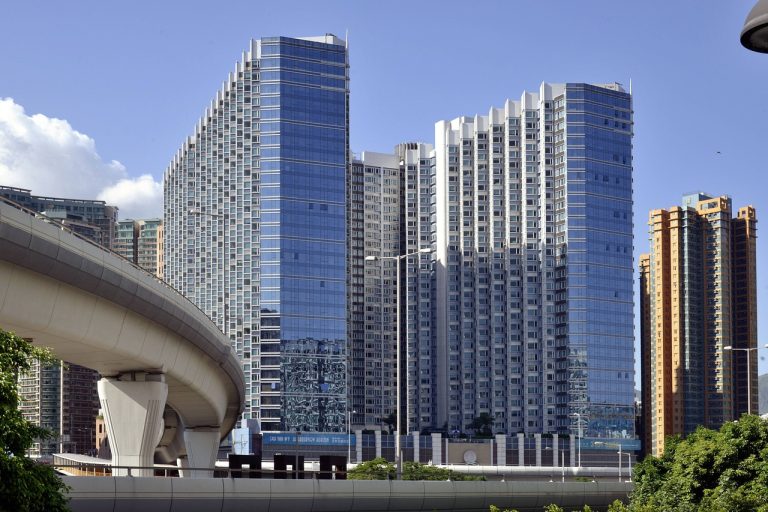Hong Kong Video
Renting a Car in Hong Kong: Tips and Tricks
Renting a car in Hong Kong can be an excellent way to explore the city and its surrounding areas at your own pace. With a well-developed road network and efficient traffic management, driving in Hong Kong is generally safe and convenient. However, there are a few things to keep in mind to ensure a smooth and hassle-free car rental experience. In this article, we will provide you with some valuable tips and tricks for renting a car in Hong Kong.
Choosing the Right Car Rental Company
When renting a car in Hong Kong, it is essential to choose a reputable car rental company. Look for well-established companies with a good track record and positive customer reviews. Some popular car rental companies in Hong Kong include Avis, Hertz, and Europcar. These companies offer a wide range of vehicles to suit different needs and budgets.
- Vehicle Selection: Consider the size and type of vehicle that best suits your needs. Whether you need a compact car for city driving or a larger SUV for exploring the countryside, make sure the rental company has the right vehicle available.
- Booking in Advance: To secure the vehicle of your choice, it is recommended to book in advance. This will also give you an opportunity to compare prices and find the best deal.
- Insurance Coverage: Check the rental company’s insurance policies and make sure you understand the coverage provided. It is advisable to opt for comprehensive insurance to protect yourself against any unforeseen circumstances.
- Additional Charges: Inquire about any additional charges such as fuel, tolls, and parking fees. Some rental companies may also charge extra for additional drivers or GPS navigation systems.
Driving License and Age Requirements
To rent a car in Hong Kong, you must possess a valid driving license. International Driving Permits (IDPs) are generally accepted, but it is recommended to check with the rental company beforehand. The minimum age requirement for renting a car in Hong Kong is typically 21 years old, although some rental companies may have a higher age limit or charge a young driver surcharge for drivers under 25 years old.
- Driving License: Ensure that your driving license is valid and has not expired. Carry your license, along with your passport, at all times while driving in Hong Kong.
- International Driving Permit: If you have an international driving permit, it is advisable to bring it along as an additional form of identification.
- Age Restrictions: Check the age requirements of the rental company and be prepared to comply with any additional surcharges or restrictions if you are a young driver.
Understanding Traffic Rules and Regulations
Before hitting the road in Hong Kong, familiarize yourself with the local traffic rules and regulations. It is essential to drive on the left-hand side of the road in Hong Kong, and the speed limits are generally 50 km/h in urban areas and 70 km/h on highways unless otherwise indicated. It is also important to be aware of parking regulations and restrictions as parking spaces can be limited in some areas.
- Left-Hand Driving: Adjust to driving on the left-hand side of the road and be mindful of traffic flow.
- Speed Limits: Observe the speed limits and drive at a safe and reasonable speed according to the road conditions.
- Parking: Familiarize yourself with parking regulations and restrictions to avoid fines or towing.
- Traffic Signs: Pay attention to traffic signs and signals, especially when entering tunnels or crossing bridges.
Navigating Hong Kong’s Road Network
Hong Kong has a well-developed road network, but it can be challenging to navigate due to its dense urban areas and complex interchanges. Having a reliable navigation system or using a GPS-enabled smartphone can greatly assist in finding your way around the city. It is also useful to have a good understanding of the major highways and routes to popular tourist destinations.
- Navigation Systems: Consider renting a car with a built-in navigation system or bring your own portable GPS device.
- Mobile Apps: Use mobile apps like Google Maps or Apple Maps to navigate and find the best routes to your desired destinations.
- Major Highways: Familiarize yourself with major highways such as Route 3 (Lantau Link), Route 8 (Airport Expressway), and Route 9 (Tolo Highway).
- Tourist Destinations: Plan your routes to popular tourist destinations such as Victoria Peak, Stanley Market, and the Big Buddha on Lantau Island.
Hong Kong Image 1: 
Understanding Parking Facilities
Finding parking spaces in Hong Kong can be a challenge, especially in densely populated areas. However, there are various parking facilities available throughout the city, including public car parks, private car parks, and on-street parking. It is important to familiarize yourself with the different parking options and their associated regulations and fees.
- Public Car Parks: Look for public car parks operated by the government or private companies. They usually charge an hourly or daily rate.
- Private Car Parks: Some shopping malls, hotels, and commercial buildings have their own parking facilities. These may offer free or discounted parking for customers or guests.
- On-Street Parking: Pay attention to parking meters and signs indicating parking restrictions or time limits. In some areas, parking may be prohibited during certain hours.
- Parking Apps: Consider using parking apps like Parkopedia or HKParking to locate available parking spaces and check real-time parking availability.
Dealing with Toll Roads and Electronic Road Pricing
Hong Kong has a comprehensive system of toll roads and electronic road pricing (ERP) to manage traffic congestion. When driving on certain highways and tunnels, you may be required to pay toll fees or ERP charges. It is important to be aware of these fees and have the necessary payment methods ready.
- Toll Roads: Prepare small denominations of cash or an Octopus Card (a rechargeable smart card widely used in Hong Kong) to pay toll fees at toll booths.
- Electronic Road Pricing: Some areas in Hong Kong, such as the Central Business District, implement ERP to regulate traffic flow during peak hours. Make sure to check the ERP zones and fees if you plan to drive in these areas.
- Autotoll: Consider using the Autotoll electronic payment system, which allows for seamless payment of toll fees and ERP charges without the need to stop at toll booths.
Hong Kong Image 2: 
Understanding Insurance Coverage
When renting a car in Hong Kong, it is important to understand the insurance coverage provided by the rental company. Most rental companies offer basic coverage, but it is recommended to opt for comprehensive insurance to protect yourself against any potential damages or accidents.
- Basic Coverage: Basic coverage typically includes third-party liability insurance, which covers damages to other vehicles or properties in case of an accident.
- Comprehensive Insurance: Comprehensive insurance provides additional coverage for damages to the rental vehicle, theft, and personal injury.
- Excess/Deductible: Check the excess or deductible amount in case of an insurance claim. It is advisable to consider purchasing additional coverage to reduce or eliminate the excess.
- Personal Accident Insurance: Consider adding personal accident insurance to cover medical expenses in case of injury.
Returning the Rental Car
When returning the rental car, make sure to follow the rental company’s instructions and return the vehicle on time. Inspect the car for any damages and report them to the rental company if necessary. Remember to return the car with a full tank of fuel to avoid any additional charges.
- Return Time: Be aware of the rental company’s return time policy to avoid any late return fees.
- Vehicle Inspection: Inspect the car for any damages and report them to the rental company to avoid disputes regarding responsibility.
- Fuel Level: Fill up the fuel tank before returning the car to avoid additional charges for refueling.
- Return Location: Return the car to the designated location specified by the rental company.
Hong Kong Image 3: 
Conclusion
Renting a car in Hong Kong can provide you with the freedom and flexibility to explore the city and its surrounding areas at your own pace. By choosing the right car rental company, familiarizing yourself with the local traffic rules and regulations, and understanding the insurance coverage and parking facilities, you can have a smooth and enjoyable car rental experience in Hong Kong.
References
– Avis Hong Kong: www.avis.com.hk
– Hertz Hong Kong: www.hertz.com.hk
– Europcar Hong Kong: www.europcar.com.hk
– Transport Department Hong Kong: www.td.gov.hk
– Discover Hong Kong: www.discoverhongkong.com







